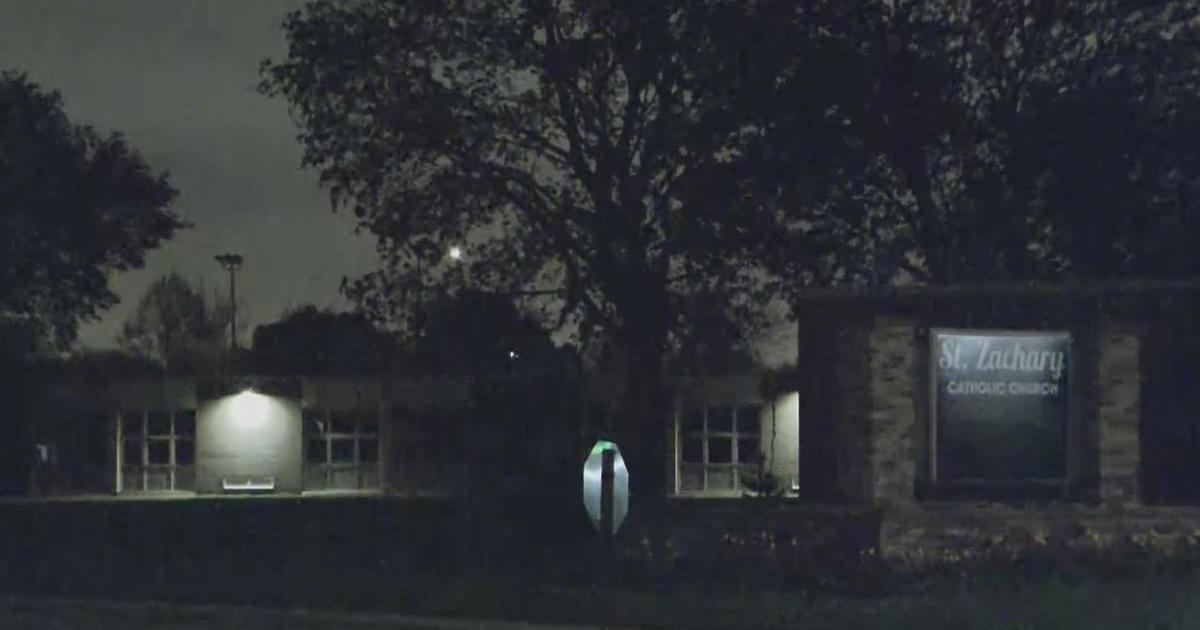Fermilab Installs Huge Magnet For Dark Matter Experiment
CHICAGO (CBS) -- A 50-foot, 17-ton electromagnet settled into its new home at Fermilab on Thursday, where it will prepare to start searching for dark matter after a couple years of tweaking.
WBBM Newsradio's John Cody reports the Muon g-2 superconducting particle storage ring arrived at Fermilab in west suburban Batavia a year ago, after spending a month traveling by truck and barge from the Brookhaven National Laboratory in New York.
It spent the winter under wraps as crews finished building its new home. On Thursday, it made its final trip inside its permanent home, after the building that now houses it was completed.
"We rolled it across the site, about a mile across the site, and then we inserted it into the building, where it was about 20 feet above the floor of the building, and it's now slowly being jacked down to the floor," Polly said.
Fermilab To Search For Evidence Of Dark Matter
Astronomers have determined physical matter makes up only 5 percent of the universe. Scientists have theorized more than 25 percent of the universe is made up of what is called dark matter, and nearly 70 percent is dark energy, but they've had difficulty actually detecting those.
That's what Polly hopes to detect in the vacuum of space by using the Muon g-2. Although the giant circular magnet is now in place, it will take a few years before it can start producing results. The device will be used to study muons, subatomic particles with a lifetime of only 2.2 millionths of a second, in hopes of discovering subatomic particles hidden in the vacuum.
"Now that we have the ring in the building, there's about a 2 to 2 ½ year period of time that it takes to actually construct the experiment. This magnet is sort of the heart and soul of the device that stores the muons, but it's a much bigger experiment than just this device by the time you couple the accelerator and build the detectors that can see the muons as they decay to electrons," Polly said. "That process takes a good couple of years. We're looking at early 2017 before we actually start taking the first real data samples."
Dr. Bradley Roberts, a Boston University physics professor helping lead the Fermilab experiment, said last year that scientists hope to use the magnet to see if they've found hints of dark matter particles, which they've been seeking for years.
He said the device will help measure muon magnetism, and maybe explain why it seems to be slightly off by a theoretical value of two.
"That difference with two arises because of the virtual quantum particles fluctuating in and out of the vacuum, so they appear and disappear, but they change the muon's magnetism," Bradley said.
That might point to the existence of as-yet-undiscovered particles, maybe even dark matter.



